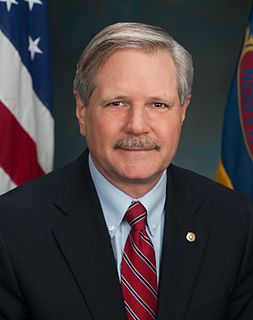A Quote by Tom Steyer
When an oil company executive tells American families that we don't need to be concerned with tar sands pipeline safety, it's not only misleading, it's insulting.
Related Quotes
The oil corporations spend a lot of money to get, say, the tar sands pipeline through, but nobody's - you know, there are definitely environmentalists being paid - but a lot of people are acting for something other than financial compensation. So if the tar sands pipeline doesn't get made, it's because a huge amount of people are doing something that doesn't involve remuneration, money, etc., because we're not actually the self-interested financial instruments that economists like to imagine we are.
The irony of environmental opposition to the Keystone XL project is that stopping the pipeline to the U.S. will not stop production in the oil sands of Canada. Instead of coming to the United States, the oil will still be produced and shipped by rail or a pipeline similar to the Keystone XL to Canada's Pacific Coast.
Bitumen is junk energy. A joule, or unit of energy, invested in extracting and processing bitumen returns only four to six joules in the form of crude oil. In contrast, conventional oil production in North America returns about 15 joules. Because almost all of the input energy in tar sands production comes from fossil fuels, the process generates significantly more carbon dioxide than conventional oil production.































